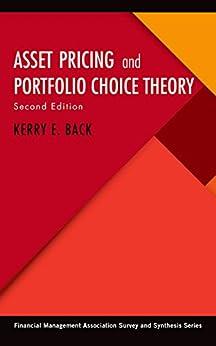Consider a person with constant relative risk aversion . (a) Verify that the fraction of wealth she
Question:
Consider a person with constant relative risk aversion ρ.
(a) Verify that the fraction of wealth she will pay to avoid a gamble that is proportional to wealth is independent of initial wealth (that is, show that π defined in (1.15) is independent of w for logarithmic and power utility).
(b) Consider a gamble ε˜. Assume 1+ ˜ε is lognormally distributed;
specifically, assume 1 + ˜ε = ez˜
, where z˜ is normally distributed with variance σ2 and mean −σ2/2. By the rule for means of exponentials of normals, E[˜ε] = 0. Show that π defined in (1.15) equals 1 −e−ρσ2/2 .
Note: This is consistent with the approximation (1.5), because a first-order Taylor series expansion of the exponential function ex around x = 0 shows that ex ≈ 1+x when |x| is small.
Step by Step Answer:






